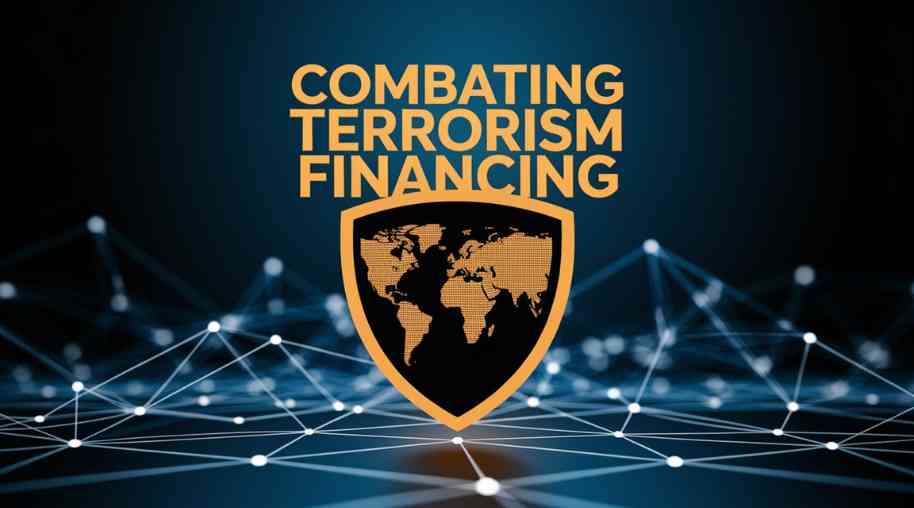CFT Full Form - Combating the Financing of Terrorism
by Shashi Gaherwar
0 1923
Combating the Financing of Terrorism: Strategies and Global Efforts
The global threat of terrorism has led governments and financial institutions to develop robust measures to combat the financing of terrorism (CFT). Terrorism, often fueled by significant financial resources, relies on the ability to raise, move, and utilize funds for carrying out attacks and supporting extremist ideologies. This makes tracking and cutting off these financial resources critical in the global fight against terrorism.

This article explores the importance of combating the financing of terrorism, key strategies, international regulations, and the role of financial institutions in this battle.
Understanding the Financing of Terrorism
The financing of terrorism involves providing funds or resources to support terrorist activities, whether through direct donations, loans, or illicit financial networks. Terrorist organizations use various means to raise and move money, including:
- Private Donations: Funds from individuals, often sympathizers, who donate to terrorist groups.
- Criminal Activities: Engaging in drug trafficking, arms smuggling, or human trafficking to finance operations.
- State Sponsorship: Some states provide funding, weapons, or training for geopolitical reasons.
- Charitable Fronts: Using charities or non-profits as fronts for fundraising and channeling funds.
The ability to access financial resources makes it essential to track and control the movement of money to prevent terrorist acts.
The Role of Financial Institutions
Financial institutions are critical in combating terrorism financing, as they are often intermediaries for terrorist funds. To effectively counter this, they must implement:
- Know Your Customer (KYC): Verifying customer identities to ensure they are not involved in illicit activities.
- Anti-Money Laundering (AML) Policies: Detecting and preventing suspicious transactions linked to terrorism financing.
- Suspicious Activity Reporting (SAR): Reporting suspicious transactions to national financial intelligence units (FIUs).
- Sanctions Screening: Screening transactions against lists of sanctioned individuals, entities, or countries.
Global Efforts to Combat Terrorism Financing
Global efforts to disrupt terrorist financial networks have expanded, with key initiatives including:
- Financial Action Task Force (FATF): Sets global standards for countering money laundering and terrorism financing, encouraging regulatory frameworks.
- United Nations (UN) Resolutions: UN Security Council Resolution 1373 mandates blocking terrorist funding and freezing assets.
- International Cooperation: Bilateral and multilateral agreements, like the Egmont Group, facilitate intelligence sharing.
- European Union (EU): Implements regulations for freezing terrorist assets and enhancing financial intelligence sharing.
The Role of Governments
Governments play a central role in combating terrorism financing through:
- Legal Frameworks: Criminalizing terrorism financing and enforcing KYC and AML requirements.
- Financial Intelligence Units (FIUs): Analyzing suspicious transactions and coordinating with law enforcement.
- Regulation of Non-Profits: Ensuring charities are transparent to prevent misuse for terrorism financing.
Challenges in Combating Terrorism Financing
Despite progress, challenges persist, including:
- Complex Financial Networks: Sophisticated networks involving multiple countries are hard to disrupt.
- Emerging Technologies: Digital currencies and blockchain enable anonymous fund transfers.
- Jurisdictional Issues: Cross-border financing exploits gaps in regulations.
- Cryptocurrencies: Pseudonymous digital currencies like Bitcoin pose detection challenges.
Combating the financing of terrorism is a global effort involving governments, financial institutions, and international organizations. By adhering to AML regulations, enforcing robust KYC procedures, and following FATF standards, stakeholders can prevent terrorists from accessing funds. Continued collaboration, intelligence sharing, and regulatory enforcement are key to reducing terrorism financing and ensuring global security.
Further Learning Resources
If you’re passionate about building a successful blogging website, check out this helpful guide at Coding Tag – How to Start a Successful Blog. It offers practical steps and expert tips to kickstart your blogging journey!
For dedicated UPSC exam preparation, we highly recommend visiting www.iasmania.com. It offers well-structured resources, current affairs, and subject-wise notes tailored specifically for aspirants. Start your journey today!

Share:








Comments
Waiting for your comments